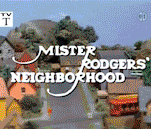Sam Amick talked with Giannis, Dame and Doc. Here are some snippets:
As a Bucks staffer walks by, Antetokounmpo grabs the man by the shoulder and asks a remarkably pointed question.
“If we don’t win this year, would you get fired?” Antetokounmpo asks with a wry smile to his co-worker. “Do you have it in the back of your mind, like, ‘(What) if this year doesn’t go well?’ Yeah, if we don’t win a championship, I might get traded. Yeah, this is the job we live. This is the world we’re living in. It’s everybody.”
It was heavy and humorous all at once, even more so when Antetokounmpo pulled a similar prank on Bucks general manager Jon Horst on his way out of the gym after the interview. From top to bottom, in other words, heads could roll here if it doesn’t go well. Or, heads could at least relocate.
“On a serious note, this is the job,” Antetokounmpo continued. “It’s the profession that we’re in. At any given moment, if you don’t succeed, that might be it for us. It was the same way with the previous coaching staff, and the year before, the players before. … If you don’t do a good enough job, you’re out.”
To hear Antetokounmpo tell it, Spanoulis’ combination of off-the-charts energy and high IQ is the kind of thing he’ll be taking with him into these crucial months ahead.
“Spanoulis has changed the way I think about things,” said Antetokounmpo, whose team went 1-3 in pool play and had the program’s first win at the Olympics in 16 years (over Australia). “My approach to the game. My love for the game. Sometimes, I think, you’re in your comfort zone. A lot of people are in a comfort zone, without even wanting to be there. You have to push. You have to demand from yourself, from the people around you. And he did that.”
“Every day, it was something else. He would just push me and push me and push me and push me, (saying) ‘You’ve got more to give. Come on. When I was 29, I was the best in Europe. I had back-to-back (championships). What are you doing?’
“All this conversation made me realize that I crave the challenge again,” added Antetokounmpo. “Of course, it pisses you off, but it puts you in the mood where you’re like, ‘Wait, I’m going to show you.’ You don’t want to let (Spanoulis) down. Like (with the Bucks), I don’t want to let Doc Rivers down. I don’t want to let Dame down. I don’t want to let my team down.”
“This year, a challenge for me is to be healthy,” he said. “A challenge for me is to play in the playoffs, to get out of the f—— first round. Assert myself even more.
“Every year for me is important because one day, I’m going to be 35 or 36 or 38 and I’m going to be like, ‘Oh, my prime just went, and I wasn’t able to do something.’ So dominate.”
“A big part of my life is my family — obviously my kids,” Lillard said. “That’s what means the most to me. So I was affected more by that than anything. But I was brought here to do a job and to show up. I did that to the best of my ability at that time. It just was tough. Everything was happening so fast for me last year.
“With parenting time, I couldn’t get anything set up. I didn’t even have a place to live for the first couple of months of the season. I was in a little apartment that they just had for me. I didn’t get to get things organized in my life. … But I think having a full summer and knowing what it is, I was able to kind of get everything set up to where this year could work for me much better than last year. I was able to get my s— together.”
“I’m doing great now,” he said. “I’m way more (at peace). It’s that way with everything, though. When hard times come, it feels like, ‘Damn, this is the hardest thing ever.’ And then when you get some time removed from it, you realize it’s not so bad.
“Like even gaining perspective being away from my family, away from my kids, it’s like, ‘It’s not ideal, but there’s people with way worse situations.’ There’s people in prison who can’t see their kids — wrongly convicted people. There’s people defending our country who don’t have the opportunity to do anything. I see my kids. I’m able to FaceTime my kids. I gained a lot of perspective. I was able to get myself set up much better this time around.”
“You’re trying to figure it out with another star and with somebody else who has the ball,” Lillard said. “(Antetokounmpo) had to figure it out with somebody else that has the ball. And that was the same thing for me. So I think that second year, obviously, you get more comfortable with what it looks like. You know the coach. I know my teammates. I know Giannis a lot better. I know what it’s like playing with Giannis a lot more.
“So all those things considered, I think that next year, you usually settle in and it’s better.”
To that end, Rivers saw improvement early on during the Bucks’ Southern California camp: more personal conversations between teammates, different kinds of laughter, that sort of thing. But on the court, where the Bucks so desperately need to be in sync, Rivers is hell-bent on encouraging the kinds of tough conversations that typically lead to growth.
“I showed a (video) clip where one player took a shot where he clearly should have thrown it to the other player, and the other player just ran down the floor (without saying anything),” Rivers said. “So I stopped it, and I said to the guy who didn’t get the ball, ‘OK, what were you thinking?’ He said, ‘Well (shrugs), he’s got to throw the ball.’ So I said, ‘OK, but you didn’t tell him.’ I was like, ‘Guys, we’ve got to get to the point where we (talk). It’s not a difficult conversation. There’s nothing wrong with saying, ‘Hey!’ And you know what? The guy’s going to say, ‘I missed you.’ Or he may not receive (the message) well, and then you’ve got to get through that too.
“But when you get through all that, you become a made team. There’s no f—— issues anymore.”
“This is the passive-aggressive generation,” he continued. “It’s amazing. From my standpoint in coaching, it’s the biggest difference (from past years). When Dominique (Wilkins) didn’t pass me the ball (in Atlanta). I’d say, ‘Nique, what the f—?’ And he would literally say, ‘Yeah, I saw you open. But I think I’m the better option.’ We would laugh about it. Or you get on the bus in my generation, and someone got their ass kicked. Boom! You’ve got to pick your s— up. It wasn’t me being mean.
“But now, we don’t get a lot of that. So we’re trying to encourage just more communication.”
I'm against picketing but I don't know how to show it.

























